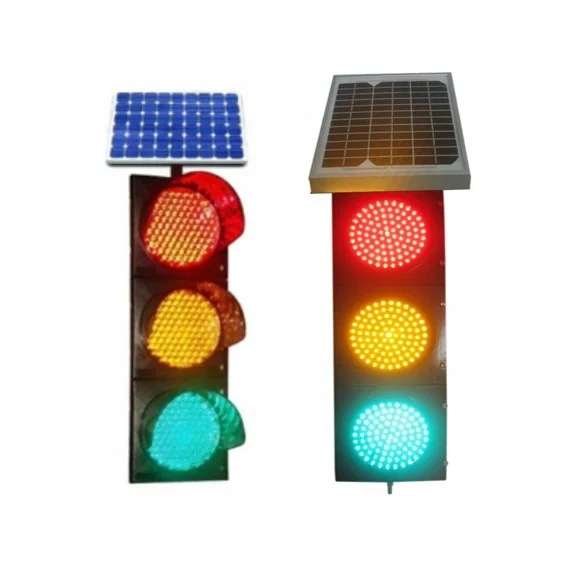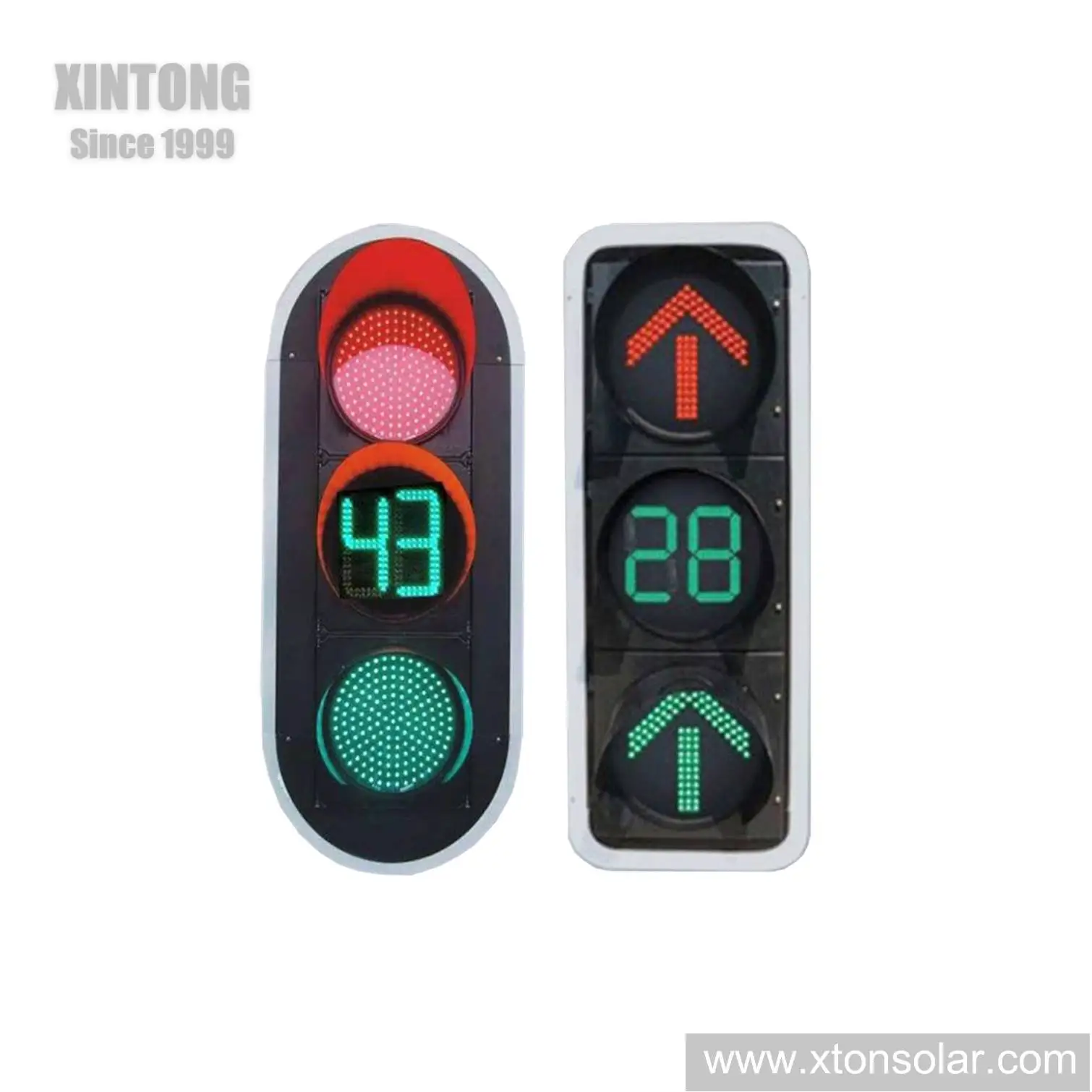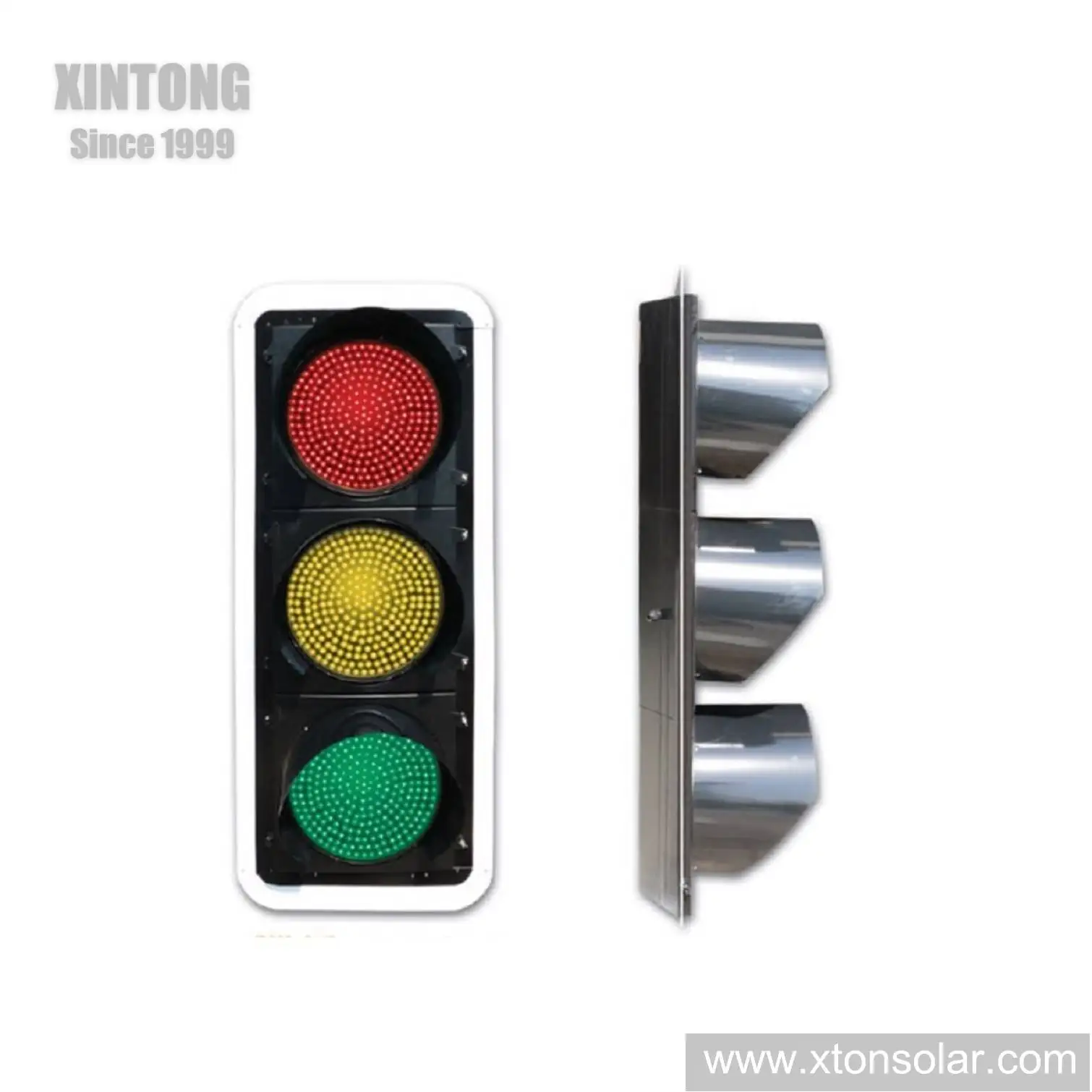|
Technical Index |
||
|
Lamp Diameter |
φ200mm φ300mm φ400mm |
|
|
Working Power Supply |
170V ~ 260V 50Hz |
|
|
Rated Power |
φ300mm<10w φ400mm<20w |
|
|
Light Source Life |
≥50000 hours |
|
|
Environment Temperature |
-40°C~ +70°C |
|
|
Relative Humidity |
≤95% |
|
|
Reliability |
MTBF≥10000 hours |
|
|
Maintainability |
MTTR≤0.5 hours |
|
|
Protection Level |
IP55 |
|
|
Product Feature |
|
The full screen signal light source is made of imported ultra-high brightness LED. The Light housing is made of throwaway aluminum die- casting or engineering plastic injection molding. The diameter of light plate light-emitting surface is 200mm, 300mm and 400mm. The lamp body could be arbitrarily combined and vertical or horizontal installed. Light-emitting unit is monochrome. The technical parameters are in line with road traffic lights GB14887-2011 standard of the People's Republic of China. |
Five Years Warranty For XINTONG Traffic Light System Both AC DC
These days, LEDs are the predominant form of illumination for signal heads, having largely superseded conventional signal lamps.
This technology consumes little power, yet today’s LEDs achieve top traffic signal performance.
LED signal heads with their bright evenly illuminated lights are reliably seen by road users, even in unfavorable lighting conditions, and using LEDs practically eliminates the disorienting phantom reflections that occur when the sun is very low.
The electrical interface to the controller is provided by a connection enablingLED lights have a considerably longer lifetime than conventional signal lamps and ensure a high level of reliability of the system. Failures caused by defective signal lamps are a thing of the past.
The higher efficiency of LEDs means that their electrical power consumption is vastly reduced, so running costs for power supply are correspondingly low. LED signal heads with their low energy consumption thus represent a valuable contribution to environmental protection: saving up to 90% of the energy consumed by signal lamps
Visibility
The visibility of traffic light depends on the following criteria:
• Luminous intensity distribution
• Phantom class
• Evenness of the luminous field
• Contrast between the signal light and its surroundings
• Size of the luminous field
• Light source
Luminous Intensity Distribution
The luminous intensity distribution is determined by the optical system – i.e., by the components that direct the light (reflector, diffusing lens) and the light source.
The luminous intensity must be sufficient to enable the signal to be easily seen in daylight but not high enough to dazzle road users at night. And its spatial distribution must ensure that the signal is recognizable from all relevant positions.
The lights can be dimmed at night for appropriate markets.
Light Sources
The predominant light source used today is LEDs, but various designs of conventional signal lamps are still used in some cases. The chosen lamps must always be matched to the optical system in order to obtain specific luminous intensity values for specified angles with the lowest possible energy consumption.










